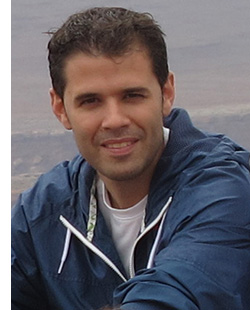
What are you investigating? What can it be used for? Scientists are often asked these questions. The answers may be easy for those doing applied research; but what about those doing fundamental research?
Since starting my research in ultrafast laser science at the University of Salamanca, Spain, my friends and family have been asking me these kinds of questions. At first I supplied quick answers that could immediately satisfy their queries, like “lasers will help us to treat tumors,” or “lasers will improve communications.” While true, my answers had little to do with my research of strong field laser-matter interactions. But how can I justify following the dynamics of fancy electrons as they are ionized from atoms and travel with different behaviors? And, more importantly, do I need to justify it?
Scientists doing fundamental research try to discover and explain phenomena in nature regardless of their work having immediate technological applications. In today’s tech-savvy world, many people undervalue fundamental research. I believe judging scientific work, theoretical or experimental, by utility alone is unwise. Scientific discovery is, in itself, important enough that it does not need to be justified. Like other non-applied disciplines, such as art, fundamental research is largely motivated by the desire to observe the beauty of the world.
Great scientific breakthroughs can arise from simultaneous discoveries in fundamental and applied research. But sometimes it takes years for fundamental research to advance the field enough to allow useful applications to evolve. One of the most obvious examples of this is Albert Einstein’s research. Over 100 years ago, Einstein laid the foundations of quantum physics—a groundbreaking theory based on mathematical principles. I doubt that he could have imagined that his theory would become the foundation for the creation of the laser. Without Einstein’s fundamental discoveries, we would not have the Internet, DVDs, laser printers or refractive surgery, nor any of the other applications made possible by lasers.
Wolfgang Ketterle, 2001 Nobel laureate in Physics, said:
"You can say two things about investing in fundamental research. You don’t know how it will pay off. But you can be absolutely confident that it will pay off, handsomely, because in one way or another it always has.” 1
Fundamental research does not need to have an immediate applied purpose. Research gives us knowledge that enriches the human condition—this alone motivates countless numbers of scientists every day. Like Einstein, they may not see direct technological applications from their research; but their contributions to the field will enable scientists in the future to make technological breakthroughs.
1 Extracted from the interview: “The truth about the universe”
I’d like to acknowledge Prof. Luis Plaja and Dr. Ricardo Torres for fruitful discussions on this topic.
Carlos Hernández-García is a postdoctoral Marie Curie fellow at JILA, University of Colorado (USA). He completed his Ph.D. in Physics in the University of Salamanca, Spain. His research is focused on strong field physics, ultrashort laser sources and attosecond to zeptosecond science. Carlos writes a blog in Spanish about attosecond science.
